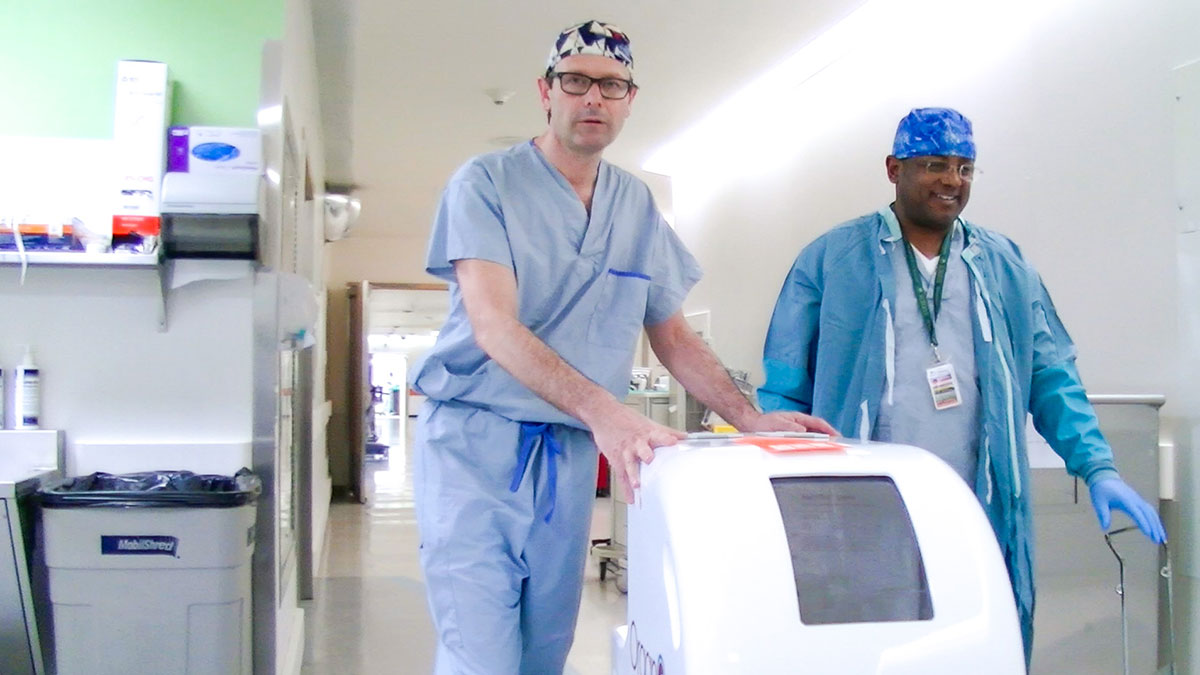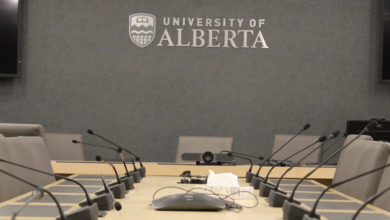 Supplied - James Shapiro
Supplied - James ShapiroIt may appear to be a nondescript white box on wheels, but the OrganOx Metra has lifesaving potential in the hands of University of Alberta hospital clinicians.
The Metra, which sustains livers after they are removed from donors, extends the life of the vital organ by nearly 24 hours. James Shapiro, who acts as the director of the Clinical Islet Transplant Program and professor of surgery at the U of A Hospital, recently began a pilot trial of the OrganOx Metra machine. Shapiro and his surgical team will test the device to compare its effectiveness to current transplantation methods.
“Transplantation might seem like an advanced science and does wonders for patients,” Shapiro said. “But the (current) technology behind transplant, how we move organs from one place to another, is antiquated.”
For nearly 40 years, the technique of choice for organ transport has been a “cold storage box,” which is basically a cooler with some ice. The Metra, however, keeps the liver at body temperature, while being perfused with oxygen and nutrient-rich blood, effectively keeping the liver “alive” while keeping it warm. Shapiro and his team will be conducting a randomized control trial test pitting the Metra against the “cold storage box” with hopes of proving it’s a better solution while becoming a part of routine medical practice for liver transplant.
From the moment a liver is hooked up to the Metra, specific metrics are measured such as temperature and oxygen levels. This data allows Shapiro’s surgical team to decide whether the organ is usable. The Metra extends the life of the liver organs, and allows a surgical team to confidently use “marginal” organs, which Shapiro might not have normally used out of fear that they wouldn’t work in a patient. For Shapiro, this equates to lives saved, he said.
And it could be a fairly substantial number of lives, as the current waitlist for liver transplant in the Edmonton area is estimated at 150 people. Of those, a quarter to a third will die before they get a liver, Shapiro said.
“We hope this technology will allow access to more livers than we had before,” Shapiro said. “Therefore, saving more patients’ lives while they’re waiting for a transplant.”
According to Shapiro, similar technology, which reproduces body conditions, can be used in kidney and lung transplants, as those organs are currently stored in the cold before surgery. He suspects heart transplants could soon follow suit.
The Metra could also improve the patient and doctor experience when it comes to the transplantation process, as surgeries often occur late at night.
“It’s going to allow us to do transplants more routinely in daylight hours,” Shapiro said. “It’s going to change the way we do liver transplants.”
The first patient to get a donor liver preserved in the Metra went through the procedure early last week, and early signs show the new machine to be a success.
“We now know that these organs are working superbly well before exposing them to a patient,” Shapiro said.
“So this is a real advance.”




